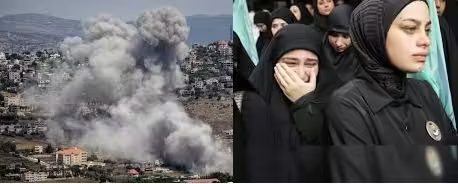
In a renewed escalation of regional tensions, Israel has ramped up its military and political pressure on Hezbollah, the powerful Lebanon-based militant group. The latest developments come as the group faces internal challenges and increasing scrutiny, both domestically and abroad.
Over recent weeks, Israeli forces have conducted a series of targeted strikes along the Israel-Lebanon border, aimed at weakening Hezbollah’s military infrastructure. Israeli officials have voiced concerns over the group’s growing arsenal of precision-guided missiles, which they argue pose an immediate threat to national security. In response, Hezbollah has vowed retaliation, though its capacity to act has been diminished by Lebanon’s ongoing political and economic crisis.
Hezbollah, long backed by Iran, is also feeling the weight of international pressure. Tehran’s support has been strained by its own internal economic struggles and broader geopolitical challenges, leaving Hezbollah in a more precarious position than in recent years. This confluence of factors has provided Israel with a strategic opportunity to assert its dominance and deter future provocations.
While Hezbollah remains a formidable force, it is grappling with a declining support base at home. The Lebanese population, weary of years of political paralysis and economic collapse, has increasingly voiced frustration with all factions, including Hezbollah, which holds significant sway in the country’s political arena. Amid this backdrop, Israeli officials see an opening to curb Hezbollah’s influence without triggering a full-scale conflict.
Despite these efforts, experts warn that the situation remains volatile. The possibility of miscalculations leading to broader conflict remains high, especially as Hezbollah is known for retaliating in asymmetric ways, including through its regional networks.
As tensions continue to rise, both Israel and Hezbollah are walking a fine line, with the international community closely monitoring the situation, concerned about the potential for further destabilization in an already fragile Middle East.